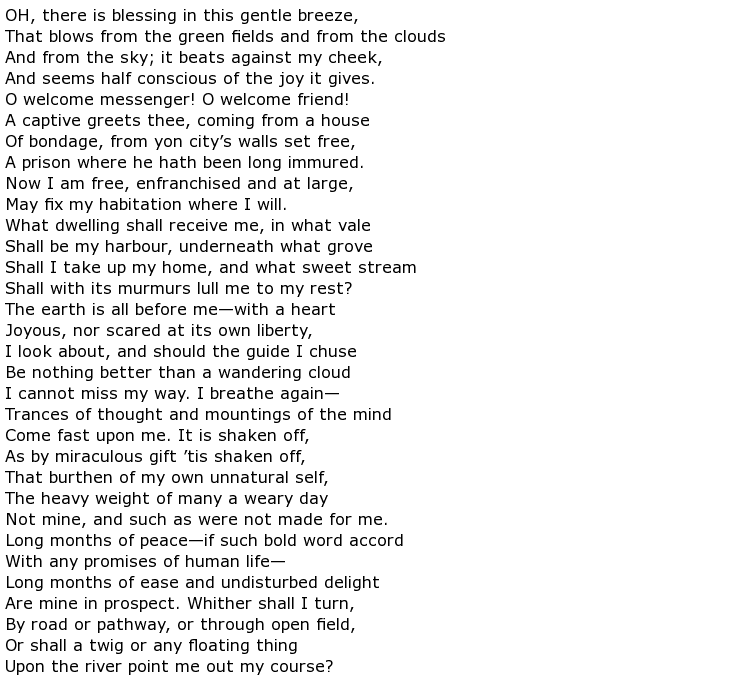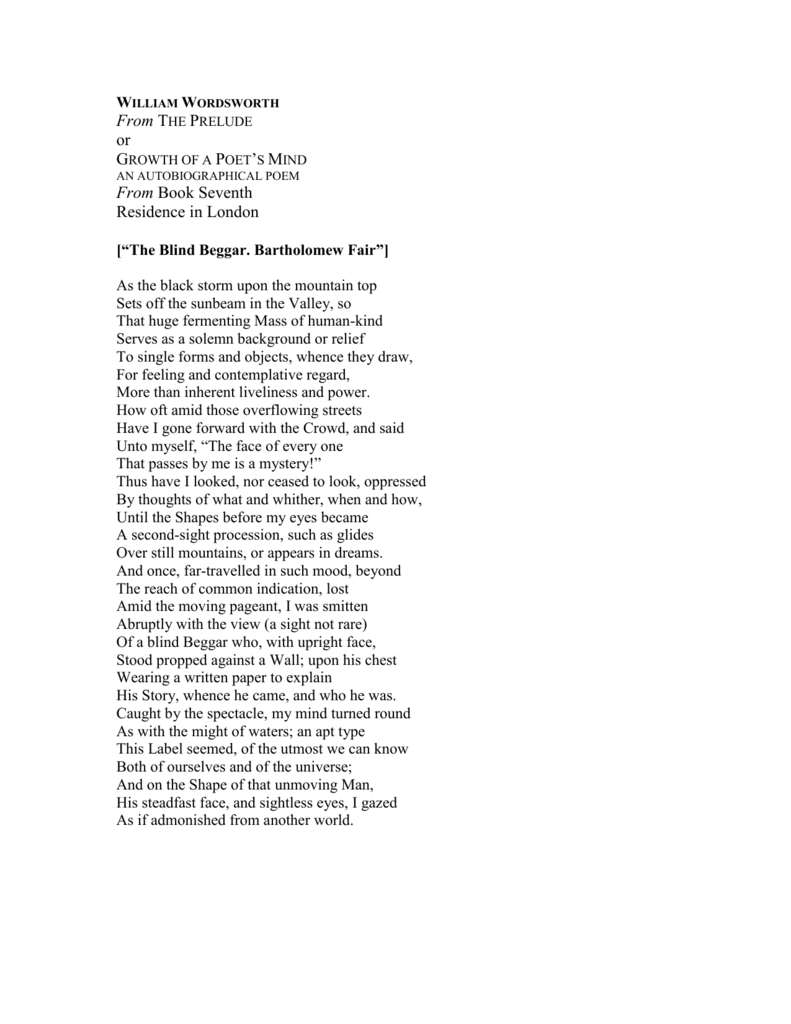
Wordsworth laments that it is not life's pains that are our worst affliction the chief cause of despair is our winning a little fame after constant and unending labor. The subject of the poet's habitual contemplation is humanity. Heather Glen and Dr Philip Connell, and on the Romantic poets more generally, such as Dr Mina Gorji and Dr Paul Chirico.A lilting passage evokes the mood of solitude. The readers include thirteen members of the Faculty of English in Cambridge, including several authorities on Wordsworth such as Prof. (He later rewrote and, in most people's opinion, ruined, the poem as he aged.) We'll be reading the version which Wordsworth wrote in 1805, while he was at the height of his poetic powers.

It thinks through his ideas about the imagination, individual poetic genius, revolution and youthful rebellion, writing's relationship to everyday life, the awesomeness of nature, and in particular the Lake District (which Wordsworth and his friends made famous).

"The Prelude" is an autobiography, and surveys Wordsworth's childhood, time in Cambridge and early travels. Wordsworth fought as a poet to break free from Milton's influence, and yet he chose to write his greatest poem, "The Prelude", in a style which imitates - and in some lines, directly borrows from - Milton's poem.

This reading is a deliberate sequel to our reading of Milton's great poem "Paradise Lost" (twelve hours long) in 2008, which was part of the celebrations for Milton's four-hundredth birthday. The entire reading took approximately ten hours.

Faculty members read all of Wordsworth's substantial poem "The Prelude" live and online. Tuesday 26 October 2010 saw a marathon event in the Faculty of English. William Wordsworth's "The Prelude" A reading by members of the Faculty of English at Cambridge


 0 kommentar(er)
0 kommentar(er)
